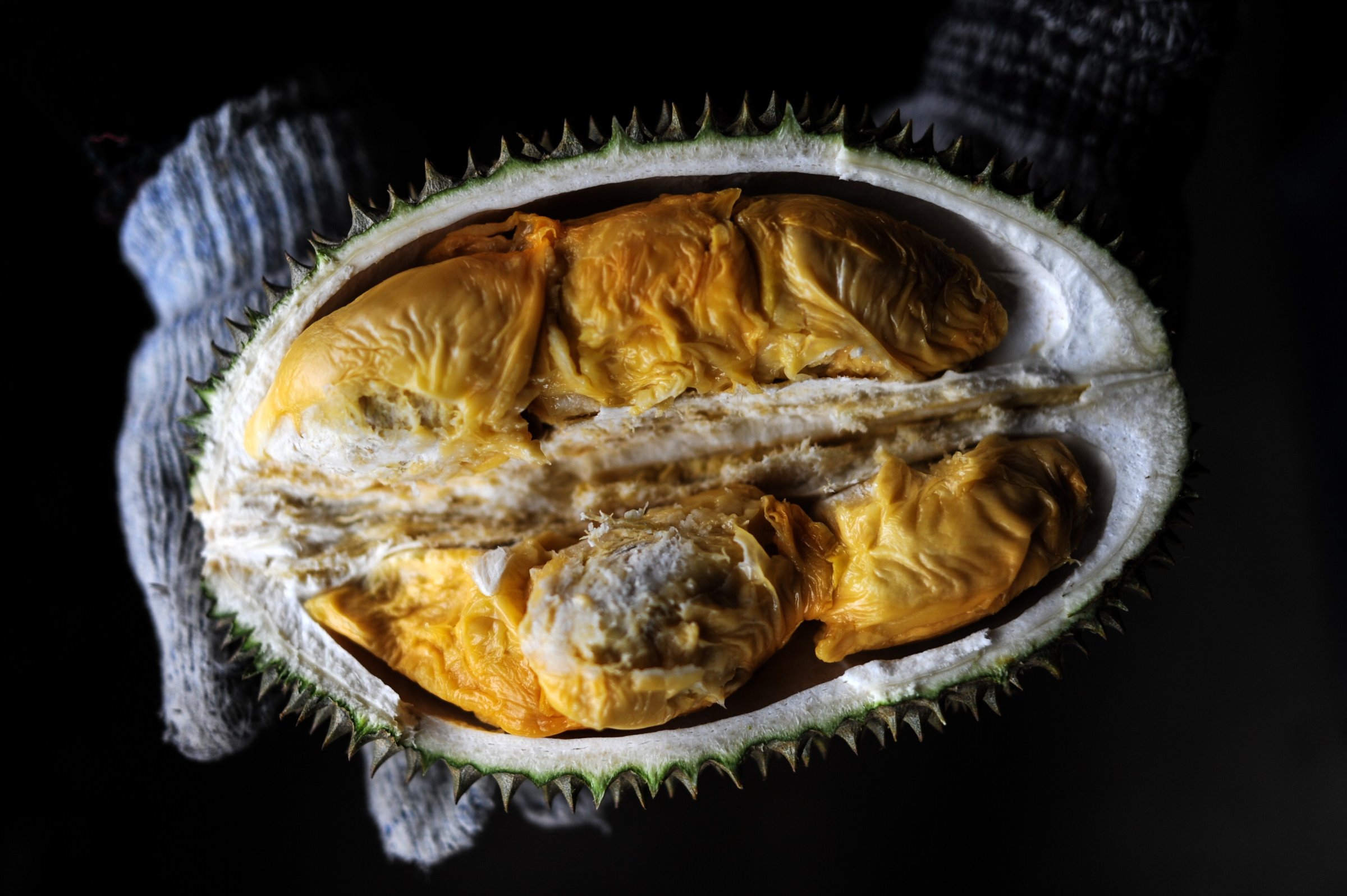
Durian, widely recognized as the world’s smelliest fruit, could one day be wafting its pungent odors through the space station. Thailand’s space research agency wants to send the divisive fruit into space by July, not to banish its notorious smell, but to test its viability as food for astronauts.
Baked durians have already been packaged and are ready for lift off, Ammarin Pimnoo of the Geo-Informatics and Space Technology Development Agency (GISTDA) told Bangkok-based news site Coconuts.
The agency plans to launch the durian from Earth with the help of a U.S. rocket company.
The packages will initially stay in space for just five minutes before coming back to the blue planet for an examination of any textural changes, according to the BBC. That information will be used to develop Thai food suitable for space.
If the test-run goes well, an agency spokesperson said they could try to “bring other Thai food that is well known, like pad Thai or mango sticky rice, up to space for more tests.”
For the uninitiated, durian is a Southeast Asian fruit relished for it sweet, custard-like interior but also notorious for its noxious smell, which has earned comparisons to rotting trash or gym socks. The odor is so pervasive that hotels, transportation systems and other public spaces across Asia sometimes ban the king of fruits. In April, an Australian University evacuated its library fearing a gas leak that turned out to be the fumes of a rotting durian.
While Thailand is eager to cater for astronauts, the country has yet to send anyone to space. Female engineer Pirada Techawijit was set to become the first Thai national to exit Earth in 2014, but the project was canceled, according to Coconuts.
More Must-Reads from TIME
- Why Biden Dropped Out
- Ukraine’s Plan to Survive Trump
- The Rise of a New Kind of Parenting Guru
- The Chaos and Commotion of the RNC in Photos
- Why We All Have a Stake in Twisters’ Success
- 8 Eating Habits That Actually Improve Your Sleep
- Welcome to the Noah Lyles Olympics
- Get Our Paris Olympics Newsletter in Your Inbox
Write to Laignee Barron at Laignee.Barron@time.com